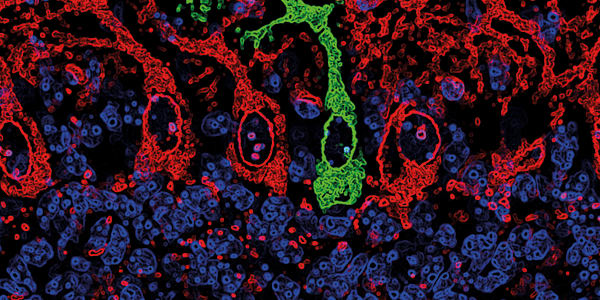Alzheimer’s disease predictive biomarkers in saliva may yield a simple, noninvasive diagnostic test

With the baby boomer population aging and incidence of Alzheimer’s disease on the rise, it seems that everyone is racing to find a definitive diagnostic test for the condition. Currently, Alzheimer’s is diagnosed by a series of cognitive tests, with biological confirmation possible only by postmortem examination of the brain. But cognitive tests aren’t always reliable, and postmortem examinations have no impact on patient care – how can doctors ensure that they’re diagnosing Alzheimer’s as early and as effectively as possible?
New research from the University of Alberta, Canada suggests that the answer may lie in saliva. At the recent Alzheimer’s Association International Conference, neuroscience student Shraddha Sapkota reported that metabolomic analysis of salivary samples by liquid chromatography-mass spectrometry allows clear discrimination between patients with Alzheimer’s, those with mild cognitive impairment, and those with normal cognitive aging (1). The researchers were also able to identify the top metabolites for distinguishing between conditions. Most importantly, the study results revealed directional associations between certain metabolites and cognition states – in other words, biomarkers upregulated in patients with known cognitive impairments were predictive of episodic memory problems and slow neurocognition when elevated in those with normal aging. Detecting such biomarkers in saliva tests may eventually allow doctors to identify Alzheimer’s patients before they become symptomatic – allowing critical early interventions to slow or even halt the progression of the disease. Not only that, but gaining this knowledge before cognitive issues become evident allows patients to take part in decision-making processes while still able, and allows researchers to identify potential clinical trial participants for Alzheimer’s disease therapeutics or preventatives. The benefits of the research extend beyond identifying predictive biomarkers. The saliva test itself is a new approach to Alzheimer’s diagnosis and has advantages of its own. Saliva testing is easy, painless and noninvasive, and the fluid itself is easy to transport and already commonly used to test for many conditions. Especially in a scenario such as cognitive decline, which might require repeated testing over a long time span, it’s an ideal choice. So how close are we to a widely available saliva test for Alzheimer’s disease? The work is still in its early stages and requires much more research – but for the time being, salivary biomarkers show clear diagnostic promise.
References
- S Sapkota, et al., “Metabolomics analyses of salivary samples discriminate normal aging, mild cognitive impairment, and Alzheimer’s disease groups and produce biomarkers predictive of neurocognitive performance”. Presented at the Alzheimer’s Association International Conference; July 21, 2015; Toronto, ON, Canada. Abstract ID: 4782.




